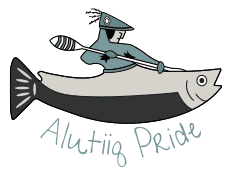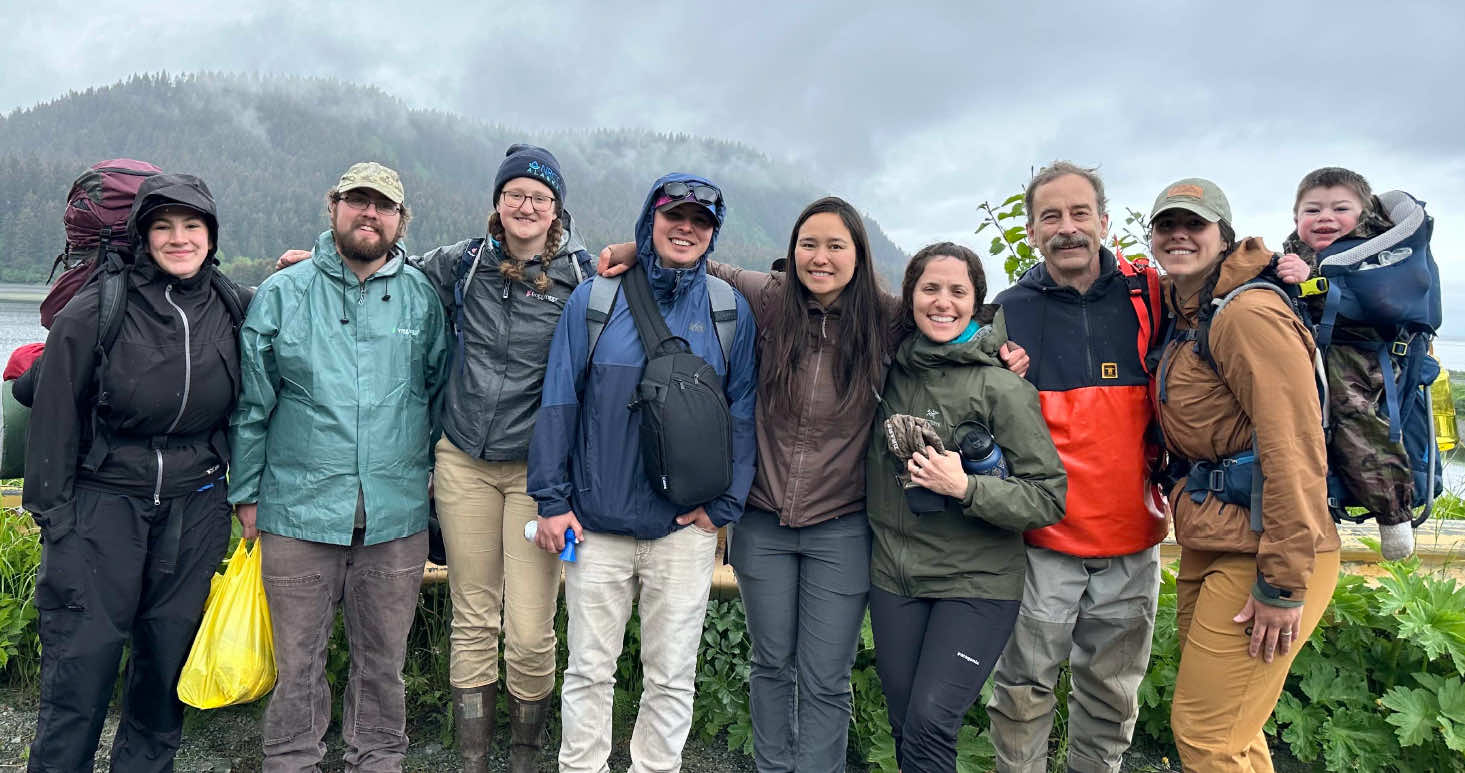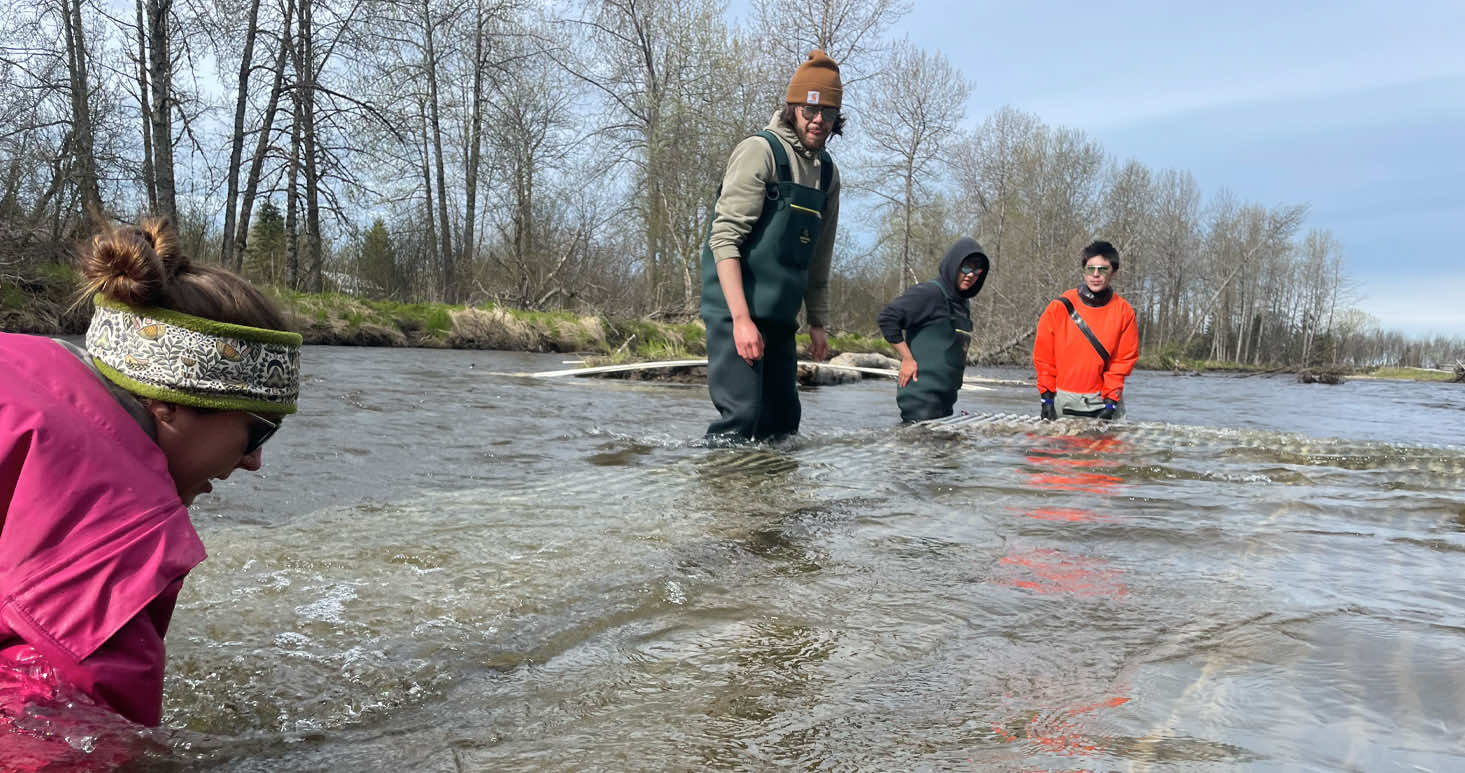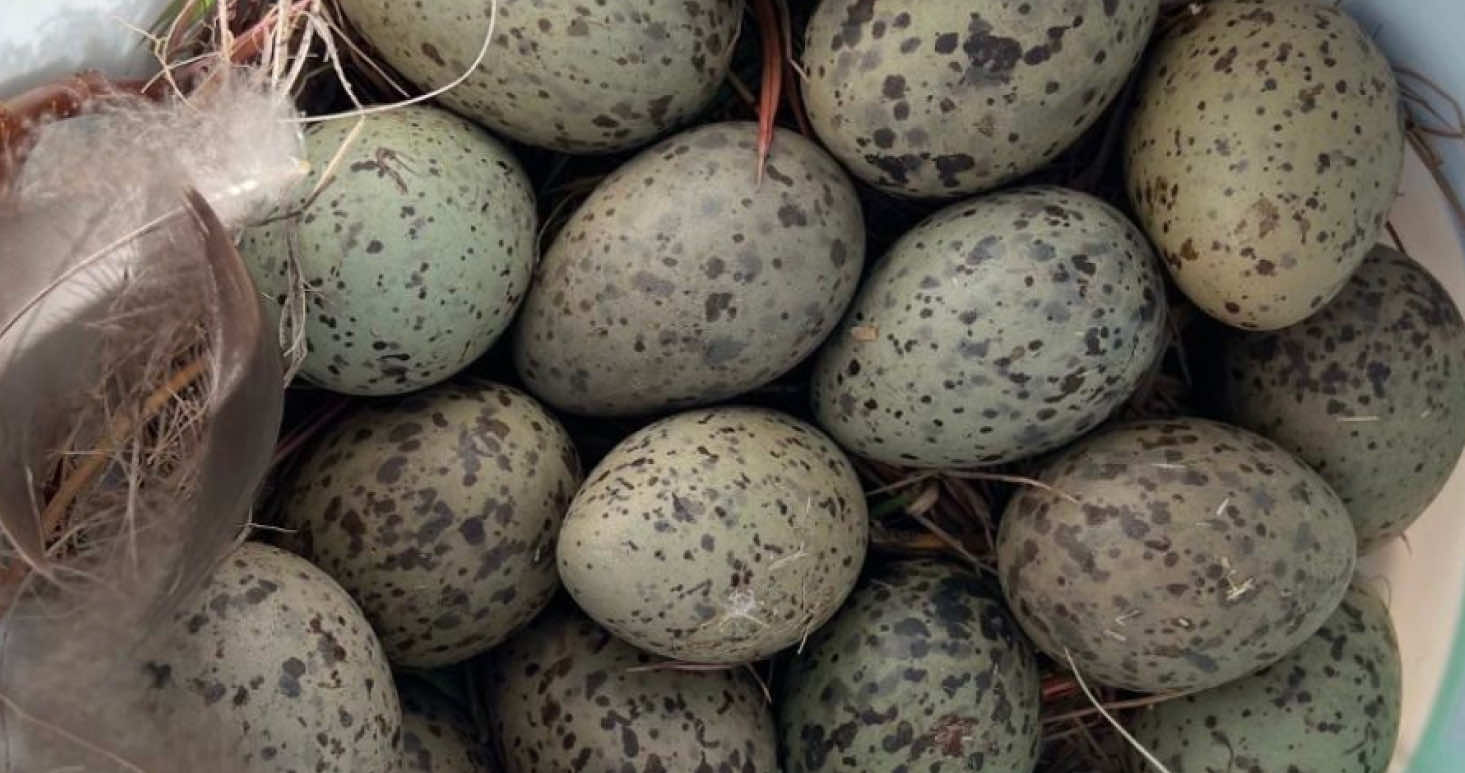CRRC 2019 Q3 Newsletter

Commission Quarterly Update
CRRC has been busy these last few months! Take a look below to see what staff have been up to. We also include other regional and noteworthy news.
At the 2019 Gathering, CRRC signed a Memorandum of Understanding with the Alaska Pacific University (APU). APU will partner on research and education activities with CRRC’s seven tribal communities and the Alutiiq Pride Shellfish Hatchery in Seward, Alaska. They will ensure the research and monitoring conducted by APU in the region is of relevance to local communities. Additionally, the collaboration builds capacity within remote villages of the Chugach region, enabling Tribes to take a more active role in the research, monitoring, and assessment undertaken within their region. This MOU will help APU understand the local and traditional knowledge held within our communities.
The MOU outlines the goals and objectives governing the establishment of a collaborative relationship between APU and CRRC. The scope includes a very broad range of research, monitoring, assessment and evaluation of the interactions of anthropogenic and natural stressors on coastal and marine ecosystems in the Chugach region of south-central Alaska.

Karli Tyance, Graduate Student at Alaska Pacific University; Patrick Norman, Chairman of the CRRC Board of Directors; Dr. Bob Onders, President of APU; John Kvasnikoff, Chief of Nanwalek; and Dr. Brad Harris, Associate Professor – Alaska Pacific University
Alaska SeaLife Center Science Club Visits the
Alutiiq Pride Shellfish Hatchery

The Alutiiq Pride Shellfish Hatchery routinely supports education programs to foster knowledge and stewardship for our marine resources. One example is this tour by Hatchery Technician, Jacqueline Ramsay, of Alaska SeaLife Center’s Seward Science Club. The eleven students that attended enjoyed their time learning about the delicate environment needed for marine life to thrive.
Photo courtesy of Darin Trobaugh, ASLC Education Department
Alutiiq Pride Shellfish Hatchery Assists UAF and the University of Hawaii at Manoa in Algal Production

Working out of the UAF Seward Marine Center facility in Seward, Alaska. Dr. Petra Lenz’s team from the University of Hawaii at Manoa, in collaboration with Dr. Russ Hopkroft at UAF, are developing better methods of assessing the biomass and production of planktonic organisms. They are also studying these communities in polar and subpolar ecosystems. The research requires live copepod culture which can take several weeks to produce. APSH is pleased to provide the algae that the copepods consume in their studies.
Native American Fish & Wildlife Society Conference Phoenix, AZ May 20-24, 2019

CRRC has been a member of the Native American Fish & Wildlife Society for years. In fact, this year’s keynote speaker was CRRC’s very own Executive Director Patty Schwalenberg. Unfortunately, due to some conflicts in her schedule, Patty wasn’t able to attend. Despite this, CRRC is very honored to have Patty Schwalenberg serving at this capacity with her caliber.
This year’s conference theme was “Native Women: Through the Hands of our Grandmothers, Mothers and Daughters, We are the Stewards of Mother Earth.” A large portion of the conference was dedicated and supportive of the roles women play in our Native communities and in addressing climate change as the over-arching issue impacting our subsistence resources and valuable lifeways of living in harmony with the natural world.
In place of Patty Schwalenberg attending the conference, CRRC sent Deputy Director Loren Peterson in her place. Prior to the conference, an entire day was focused on Climate Change for those interested in attending presentations by Tribes. Several Tribes showcased their work of adaptation to Climate Change. For instance, the Tohono O’odham Nation identified climate trends impacts on human health and emergency management plans for their tribe. Some of the climate impacts include extreme storms and flooding and earlier starts in increasing larger wildfires. As a result, they implemented a volunteer firefighter program and continue floodplain mapping and generating inundation maps for flood-prone communities.
While many Tribes presented adaptation plans, one key element seemed to be missing from these plans: mitigation plans. In Loren’s previous work at the Alaska Conservation Foundation, Loren managed the Alaska Native Fund of which many Tribes received grants for climate change work. Many of prior grantees included mitigation strategies along with adaptation plans. It’s important to note that reducing and lessening the impacts of climate change is crucial as adapting to this life threatening phenomenon. For example, one tribe installed energy efficient LED lighting in several tribal homes as a way to reduce carbon emissions. If communities can collectively find new ways to reduce our carbon imprint, we are extending the time for more opportunities for the future generation to find new solutions to this complex issue. Furthermore, during the NAFWS conference, the Southern UTE Tribe of Washington presented a proactive means to address the issue. For instance, the Tribe is calling for a Tribal Political Action Committee to support candidates for legislative offices who are more likely to introduce pragmatic policies to reducing climate change rather than taking on a climate change denial stance like many current politicians. By supporting candidates for such offices, we can then begin to see more policies and regulations proposed to combat climate change such as increased taxation on large industrial corporations and protecting endangered species, especially those that have a cultural significance to tribes.
The conference provided a great opportunity for Alaskans to have a voice in areas of management of subsistence resources along with the U.S. Fish & Wildlife agencies and other groups such as the National Park Service. Since Alaska is not congruent with the lower 48, membership in these types of societies is an effective way to network and partner with other organizations and groups to see what others are doing to manage and protect resources and learn from their strategies and action plans. It’s also important to promote Alaskan voices in a change climate since we are located at ground zero with climate change impacting the Arctic with melting glaciers, rising sea levels and threatening vulnerable subsistence resources, to name a few.
The Native American Fish & Wildlife Society is interested in having more Alaskan organizations in their membership. This year, there were just a handful of Alaskans. Some of the Alaskan attendees included Paul Mountain of the Nulato Tribe, Charlie and Ursula Prince with Yupiit of Andreafski out of Saint Mary’s and Debra Lynne with Tanana Chiefs Conference as well as CRRC’s representative Loren Peterson. Since we have a small representation from Alaska in this organization, the NAFWS is seeking more Alaska membership. Tribes and Alaska Native organizations are encouraged to enroll. Together we can be more effective when united. Consider a membership for your organization. More information on membership can be found on their website at https://nafws.org/about-nafws/membership.
It’s important to note that CRRC believes it’s important to have a presence in these conferences. Having a representative attend on behalf of CRRC furthers our mission in the protection of our natural resources and supporting sustainable economic development for our member tribes. We hope to have more opportunities for the CRRC board and staff to participate in more conferences and events. This will allow for more Alaskan voices to be heard in issues impacting our Native communities and the resources we depend on for our sustenance. We are grateful for these opportunities as they help reinforce the important work we are doing to advance towards our mission and ultimately our vision of protection, preservation, conservation and prudent use and stewardship of fish and wildlife resources in the Tribal traditional use areas of the Chugach region.

Executive Director, Patty Schwalenberg in 2015 received the Chief Sealth Award for Outstanding Contributions toward the Preservation, Protection and Prudent Conservation of this Nation’s Vital Fish and Wildlife Resources at the NAFWS Conference. On her left is Sally Williams and on her right is David Wolf.

In December one of our VISTA members, Rachel, had the opportunity to attend an Americorps training in Phoenix. At this training, Rachel was able to connect with VISTA members across the country, share experiences and stories with individuals working towards similar goals, and attend courses intended to develop professional skills like grant writing, creating partnerships, and resource development. One notable session Rachel attended during this four-day training was title “Engaging the Community Using an Asset-Based Approach.” In this session, asset was defined not in monetary terms but in terms of social capital. Here, social capital and “assets” are viewed as practices, places, knowledge, non-monetary resources, and relationships that benefit and strengthen the community. The broad goal of this session was to shift from a deficit-based perspective to an asset-based perspective where one focuses not on problems but on opportunity. One idea that Rachel took away from this session would be to use her background in GIS and the recent GIS training she took with the BIA to create asset maps for the CRRC communities concerning natural resources.

Earlier this month, Nome high school students and community members had a chance to learn about ocean acidification from Jeff Hetrick, director of the Alutiiq Pride Shellfish Hatchery (APSH) in Seward. Hetrick has been working with Alaska Native communities in Southcentral Alaska to collect and process water samples at the hatchery, and the community-based sampling effort is now extending to the communities of Nome, Kotzebue and Utqiaġvik.
Read more about the OA Network at the APSH’s involvement by clicking here here.
Celebration of Elders


Feona (Kheona) Joan Sawden, passed away peacefully on May 26, 2019, at her home in Port Graham, Alaska at the age of 80. She was born on April 22, 1939, in Port Graham to Larry and Polly Meganack.
A visitation was held May 31, 2019 at St. Herman of Alaska with funeral services followed on June 1, 2019, at 12 p.m., in Port Graham. Feona worked as an Alaska Native Medical Center Orthopedic Nurses Aide from 1966 to 1969; Bilingual Teacher in Port Graham for the Kenai Peninsula Borough School District; Secretary at Chugach Native Inc. from 1978-1979; Chugach Alaska Corporation Board of Directors from 1978-1985, and Health Aide from 1991 until retirement. Feona was very involved with her family, culture, language, traditional preservation and community. She volunteered with the local parish council, served as an Elder representative at AFN, and was a Translator for the Sugpiat language in several publications and teachings. Feona loved to crochet, visit with friends, participating in subsistence harvests and sharing her knowledge of the Sugcestun language. Her career and professions showed her continuous dedication of her community and the Alaska Native people. Feona valued the preservation, protection and documentation the Aluutiq/Sugpiaq language, holistic health and natural healing and the importance of education among our Native communities.
Feona did audio recordings for a few stories, found here: http://www.chugach.com/who-we-are/history-culture/why-brown-bears-are-hostile-towards-men & https://www.chugach.com/who-we-are/history-culture/how-raven-brought-fire
Feona also contributed to this recipe book: http://www.ankn.uaf.edu/ANCR/Alutiiq/Fireweed/Issue3/Recipe%20Section/recipe%20seafood.htm
Feona provided the Alu’utiq for the book, Nupuget: A Beginning Alu’utiq Picture Dictionary: https://uafanlc.alaska.edu/Online/SU990S1999/SU990S1999-01.pdf &https://uafanlc.alaska.edu/Online/SU990S1999/SU990S1999-02.pdf
Feona has been a contributor on several books (Nangluki Tekret Waamuciq, Qangirllat Picit (Old Beliefs), Quliyangua’it Paluwigem Uciinii’in, Fireweed, Cillqaq; Life and Times in Port Graham): https://www.uaf.edu/anla/collections/search/result.xml/index.xml?contributor=3445&sessionId




